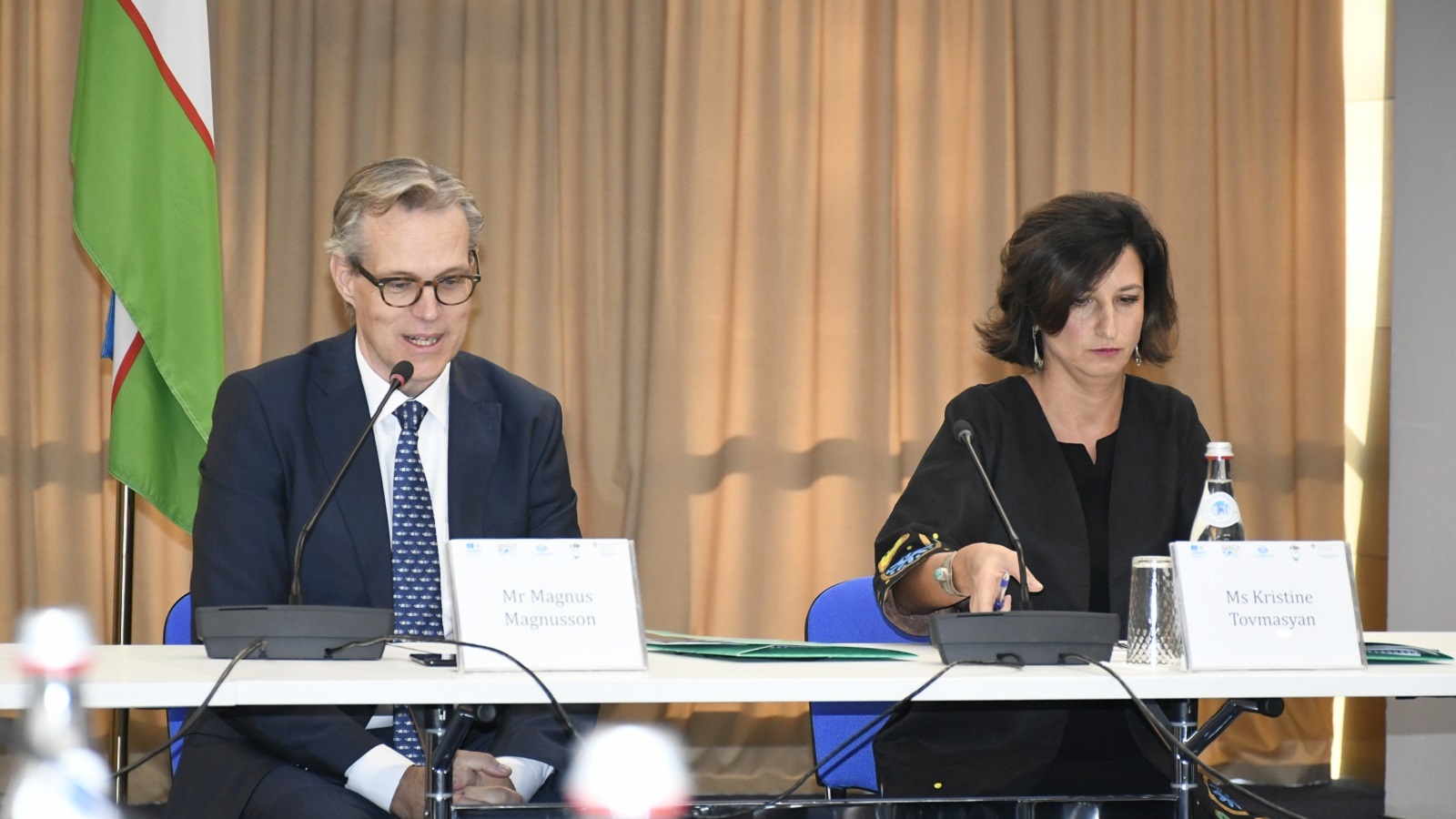3 November 2022
On November 2, UNESCO held the third meeting on collaboration as part of "The governance of groundwater resources in transboundary aquifers (GGRETA)" project, which was aimed at strengthening the joint management of the Tashkent area Transboundary Aquifer (TBA).
Scientists and experts in the field of ground and surface water management from Kazakhstan and Uzbekistan, responsible for developing recommendations based on a mathematical model, as well as representatives of non-governmental and international organizations participated in the meeting.
The need for groundwater resource assessment and management has come to the forefront of global agenda on sustainable development. This was highlighted in “UN World Water Development Report 2022”, which is called: “Groundwater: Making invisible visible.” Groundwater covers a significant amount of water demands, in particular in areas with relatively dry climates. If we want to benefit optimally from our groundwater resources and to ensure their sustainability, we should govern and manage this precious resource carefully. But practice shows that groundwater monitoring and management tends to be challenging. Until not very long ago, the invisible groundwater used to be taken for granted in most countries around the world. But this attitude is no longer appropriate.
Magnus Magnusson, officer in charge of the UNESCO Almaty Cluster Office for Kazakhstan, Kyrgyzstan and Tajikistan
Indeed, for years we have perceived our own groundwater as something limitless. There is now a shift towards a better understanding of the need to regulate transboundary groundwaters. The Committee of Geology and our government as a whole support this approach. The purpose of GGRETA is to develop a collaborative approach to freshwater management. We think that UNESCO’s work here is an example of supporting cooperation between two neighbouring, two brotherly countries. A lot of fruitful work has been done within the framework of this project.
Yerlan Galiev, Deputy Chairman of the Geology Committee of the Ministry of Ecology, Geology and Natural Resources of the Republic of Kazakhstan
The Tashkent transboundary aquifer is of unique importance for providing water to our countries. It is very important to rationally use and effectively monitor the state of groundwater. A lot has been done within the framework of the GGRETA project. We have delved deeply into the problem of declining aquifer resources.
Rasuljon Begmatov, Head of the Department of Hydrogeology, Engineering Geology and Geoecology of the State Committee of the Republic of Uzbekistan for Geology and Mineral Resources
To date, the project has completed a predictive analysis of the operation of the Tashkent area TBA, which revealed a significant decrease in the level of fossil groundwater and the depletion of surface reservoirs in the areas of groundwater intake.
The high rates of water consumption endanger the water quality of the Tashkent area TBA, as well as the availability of a unique source of artesian water and its preservation for future generations.
Experts warn that the rate of depletion requires urgent joint action and implementation of the recommendations made in the analysis.
For reference:
Tashkent area aquifer represents the artesian basin, the structure of which includes several aquifers and complexes separating them by aquitards. Pretashkent aquifer is located on the territory of Uzbekistan and Kazakhstan. The smaller south-eastern part of the aquifer is located in the Tashkent province of Uzbekistan, and the bigger, the north-west part in the Chymkent province of Kazakhstan. The study area is highly populated, especially on the Uzbek part.[1]
Groundwater – accounting for approximately 99% of all liquid freshwater on Earth and distributed over the entire globe, albeit unequally – has the potential to provide societies with tremendous social, economic and environmental benefits, including climate change adaptation. Groundwater already provides half of the volume of water withdrawn for domestic use by the global population, and around 25% of all water withdrawn for irrigation, serving 38% of the world’s irrigated land. Yet, despite its enormous importance, this natural resource is often poorly understood, and consequently undervalued, mismanaged and even abused. In the context of growing water scarcity in many parts of the world, the vast potential of groundwater and the need to manage it carefully can no longer be overlooked.[2]
[1] https://www.un-igrac.org/news/kazakh-groundwater-professionals-trained-igrac
[2] https://unesdoc.unesco.org/ark:/48223/pf0000380726_rus

Permanent link: http://en.unesco.kz/third-meeting-on-groundwater-cooperation-in-the-frame-of-tashkent-area-transboundary